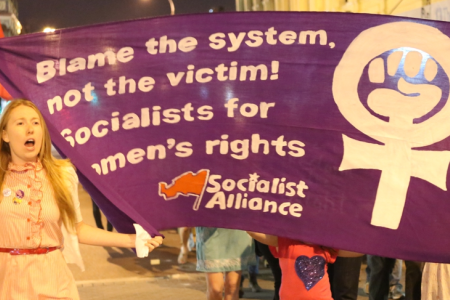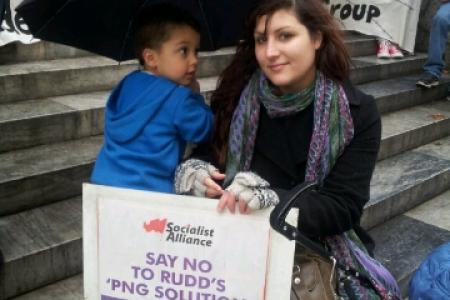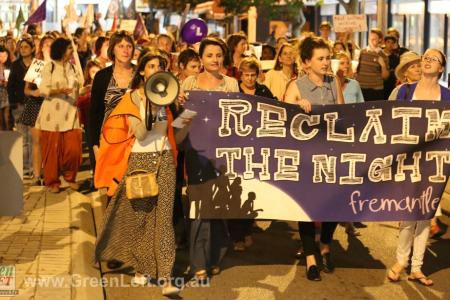Women’s Rights
The 2012 Poverty In Australia report by the Australian Council of Social Service revealed that 2,265,000 people, including 575,000 children, are still living below the poverty line in Australia.
The Socialist Alliance says: Bring the mining industry, the big banks and the energy companies under public/community ownership and control, so that they can be run in a way that respects Aboriginal rights, the environment and social justice.
This updated Women’s Charter, was originally adopted in 2012, and has since been updated in line with the decisions of the 8th national conference and the 10th national conference of the Socialist Alliance.
Women who wear the hijab, niqab or burqa are bearing the brunt of the rise of racism against people of Muslim faith or those from a Middle Eastern background since the terrorist attacks in the US on September 1, 2001.


